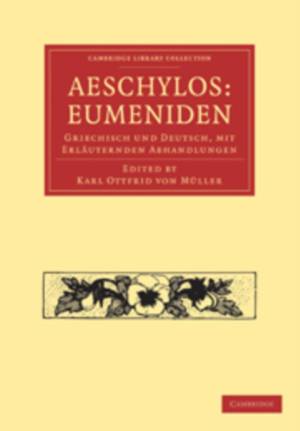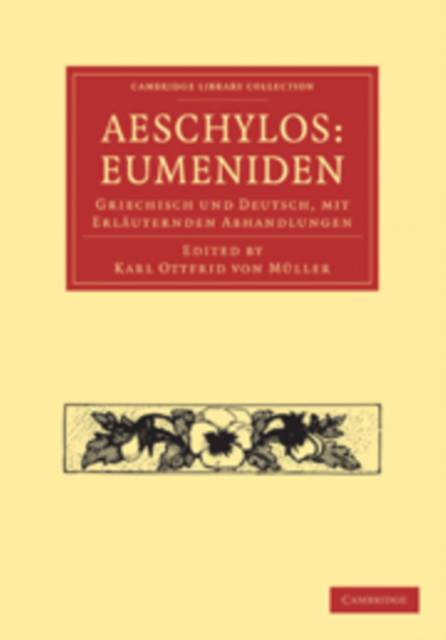
- Afhalen na 1 uur in een winkel met voorraad
- Gratis thuislevering in België vanaf € 30
- Ruim aanbod met 7 miljoen producten
- Afhalen na 1 uur in een winkel met voorraad
- Gratis thuislevering in België vanaf € 30
- Ruim aanbod met 7 miljoen producten
Zoeken
Aeschylos: Eumeniden
Griechisch Und Deutsch, Mit Erläuternden Abhandlungen
€ 61,45
+ 122 punten
Omschrijving
Karl Ottfrid von Müller's translation of and commentary on Aeschylus' play The Eumenides, the concluding drama in the Oresteia trilogy, was first published in 1833. The play is a reenactment of the Greek legend of the trial of Agamemnon's son Orestes in Athens. Orestes' mother Clytemnestra had killed her husband, and as an act of revenge Apollo ordered Orestes to murder her. Orestes is hounded by the Eumenides (Furies) and travels first to Delphi to have his blood-guilt purified and then to Athens to seek the help of Athena. She decides that an impartial jury of Athenian citizens should decide the fate of Orestes, who is acquitted. Müller does not only deliver a translation of the play, but provides the reader with the tools for a wider interpretation by exploring the role of the chorus, the significance of the costumes and the composition of the play itself.
Specificaties
Betrokkenen
- Uitgeverij:
Inhoud
- Aantal bladzijden:
- 216
- Taal:
- Duits
- Reeks:
Eigenschappen
- Productcode (EAN):
- 9781108015615
- Verschijningsdatum:
- 31/10/2010
- Uitvoering:
- Paperback
- Formaat:
- Trade paperback (VS)
- Afmetingen:
- 170 mm x 244 mm
- Gewicht:
- 349 g

Alleen bij Standaard Boekhandel
+ 122 punten op je klantenkaart van Standaard Boekhandel
Beoordelingen
We publiceren alleen reviews die voldoen aan de voorwaarden voor reviews. Bekijk onze voorwaarden voor reviews.










